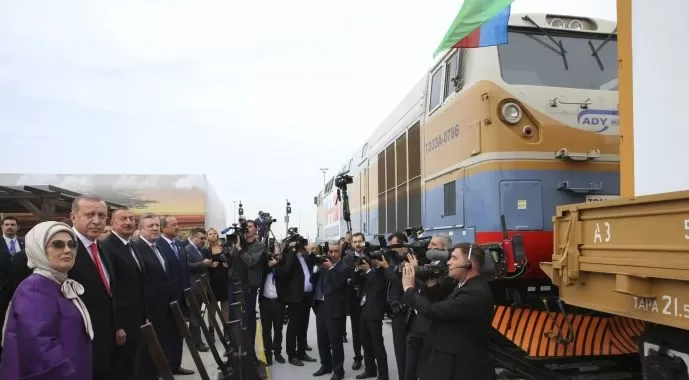
Transportation in Turkey
The launch of Baku – Tbilisi – Kars railway, Transportation in Turkey
Construction work continues in full swing at the Baku-Tbilisi-Kars railway project known as BTK. The project is vital for Turkey and many more surrounding countries and is supposed to be officially inaugurated next June.
In this context, the Turkish minister of Transport, Maritime, and Communication has mentioned that the total cost of this project has reached 450 Million US Dollars. The construction work is expected to be completed in 2 months. The delay in completion was attributed to a harsh snowy winter in the previous months.
He added that the project – Transportation in Turkey – will stretch over 838 KM linking the district of Kars in East Turkey with the capital of Georgia, Tbilisi and the capital of Azerbaijan, Baku.
The importance of this project will benefit many countries around the world wanting to export products from China, Kazakhstan, Turkmenistan, and Azerbaijan to Europe through Turkey, the minister added.
He also pointed out that this project was placed on the agenda of the Economic Cooperation Organization, and its completion is long awaited by the countries involved due to its importance and impact on international trade.
Upon the completion of the project, shipping time will go down by third. While shipping goods currently between China and Europe would take 45 – 60 days via sea, the new railway will get the mission done in only 15 days thus, saving time and expenses.
The importance of the project – Transportation in Turkey
Despite the availability of different transportation methods such as; express roads, sea cargo, and air cargo, the BTK project is considered the most efficient, secured, environmentally friendly choice in comparison with the alternatives.

The project is being considered as a revival of the historic Silk Road.
It is expected that the railway project will transport 1Million passengers and 6.5 Million metric tons of cargo upon completion. These figures will go up to 3 Million passengers and 17 Million tons of cargo by 2034. (Source: Turk Press).






1_360_230_jpeg.webp)

1_360_230_jpg.webp)
1_360_230_jpg.webp)